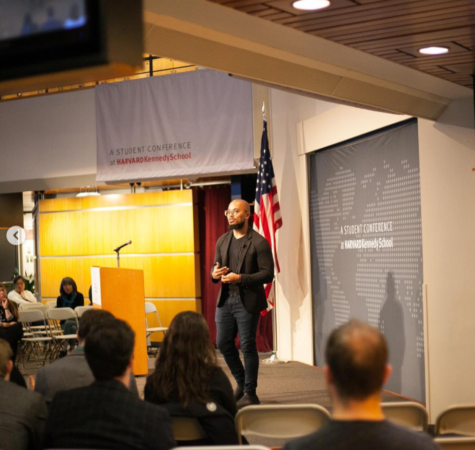Each year more technology companies are shifting their focus to create more social impact initiatives. Some are trying to use artificial intelligence to take the implicit biases out of the hiring process, while others are finding ways to provide identification tools for homeless communities through blockchain technologies.
Robert Greenfield — the co-founder of ConsenSys Social Impact — is highlighting the importance of social impact initiatives at his company. The ConsenSys Social Impact team researches and solves problems for its partners. The team has worked with the University of Michigan, Human Rights Foundation, Lane Crawford Joyce, and Black Girls CODE using blockchain to provide social solutions to the groups.
Despite how useful blockchain technologies can be, many people still do not understand exactly what it is or does.
“It’s a background technology,” Greenfield said. “One of the issues in the marketing in the blockchain ecosystem is that they make it seem like it’s a feature that you can actually see.”
Blockchain can be used to keep sensitive records, including financial and medical information. It can also be used in business-to-business partnerships, enabling companies to have secure and reliable information tracking.
“It’s a database where no one central entity controls what data is in it,” Greenfield said. “As simple as that seems, that has really big technology implications when you think of a use case where you have multiple companies working together that may not necessarily trust each other.”
Greenfield said that the technology comes in handy when companies need a “shared reference of the truth.”
Blockchain is commonly heard in conversations about cryptocurrency, but blockchain and crypto are not synonymous.
“Cryptocurrencies are just a feature of blockchain,” Greenfield said. “You don’t need a cryptocurrency to have a blockchain, but you do need a blockchain to have a cryptocurrency.”
The team lead worries that minorities are not getting in on the new-found wealth with cryptocurrencies.
“All these new financial products couldn’t exist before using blockchain technology. You need to at least be open to experiencing the technology and the opportunity,” Greenfield said. “To hear about Bitcoin and not even read about it doesn’t even make any sense. You’re putting yourself at a disadvantage.”
Greenfield believes minorities, especially Black people, are much more risk-averse when it comes to investing and that these behaviors are directly linked to a history of economic oppression.
“A lot of our communities aren’t seeing the same effect in their confines because we’ve been conditioned to be extremely economically conservative,” Greenfield said.
He says the lack of minorities in the blockchain and cryptocurrency space impacts how these groups interact with the technology on a broader scale. That’s where the ConsenSys Social Impact team comes in.
The ConsenSys Social Impact team utilizes blockchain to help organize and streamline sexual assault reporting in California and securely documents Syrian war crime evidence. Additionally, it has created a scholarship program sending 60 people to Devcon, the world’s largest Ethereum conference. Greenfield said that hotel, flight, and registration expenses can total to up to almost $5,000.
“They always hold it in an international spot, so if you don’t come from a privileged background, you’re not going,” Greenfield said.
Greenfield hopes to build more partnerships with his work through the ConsenSys Social Impact team and make a huge impact on minorities in the blockchain ecosystem.

